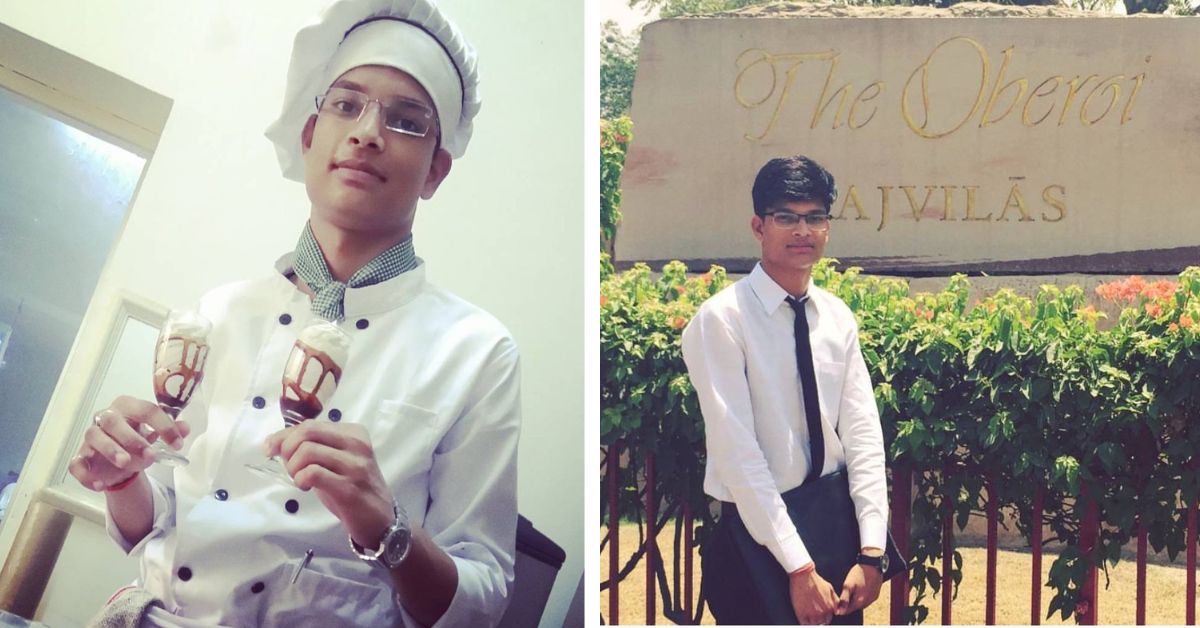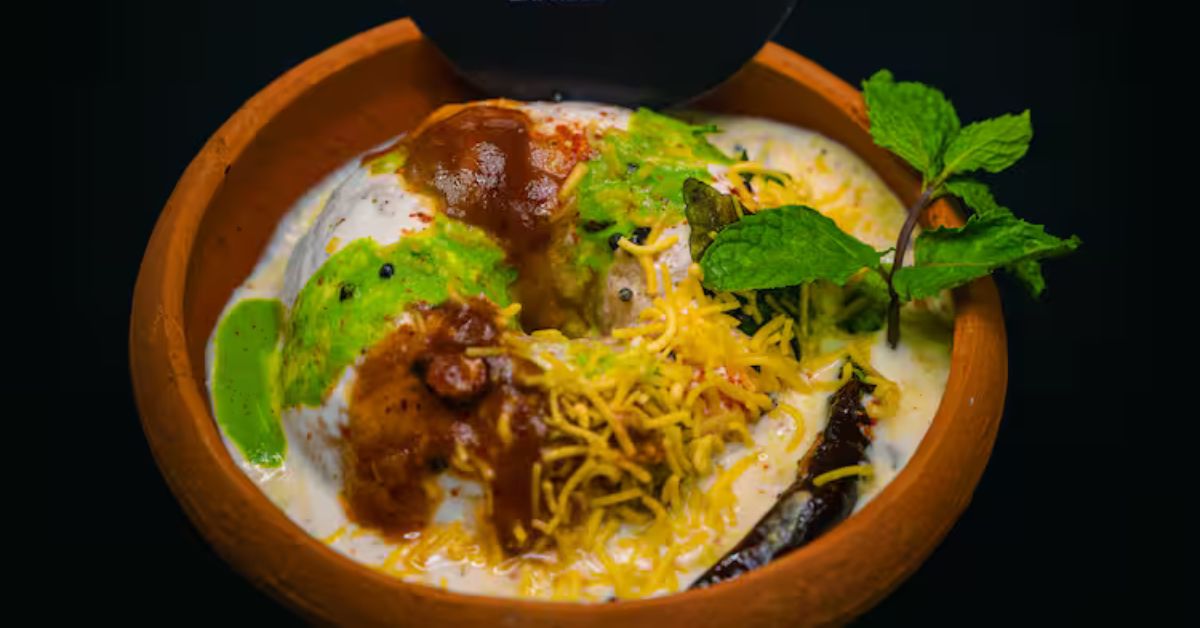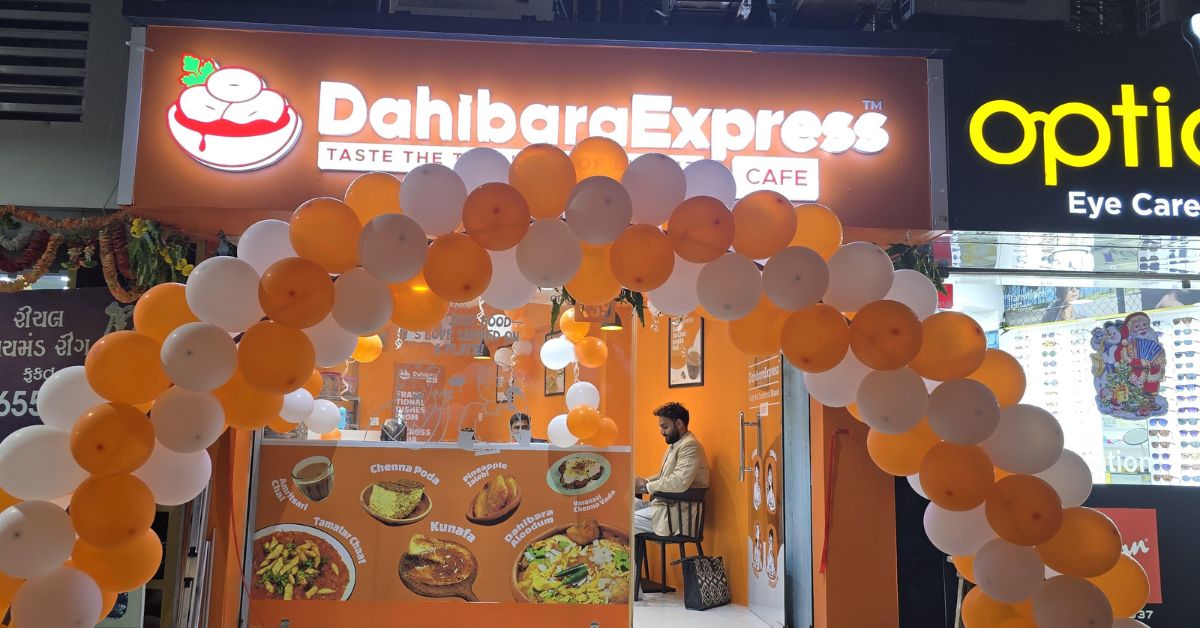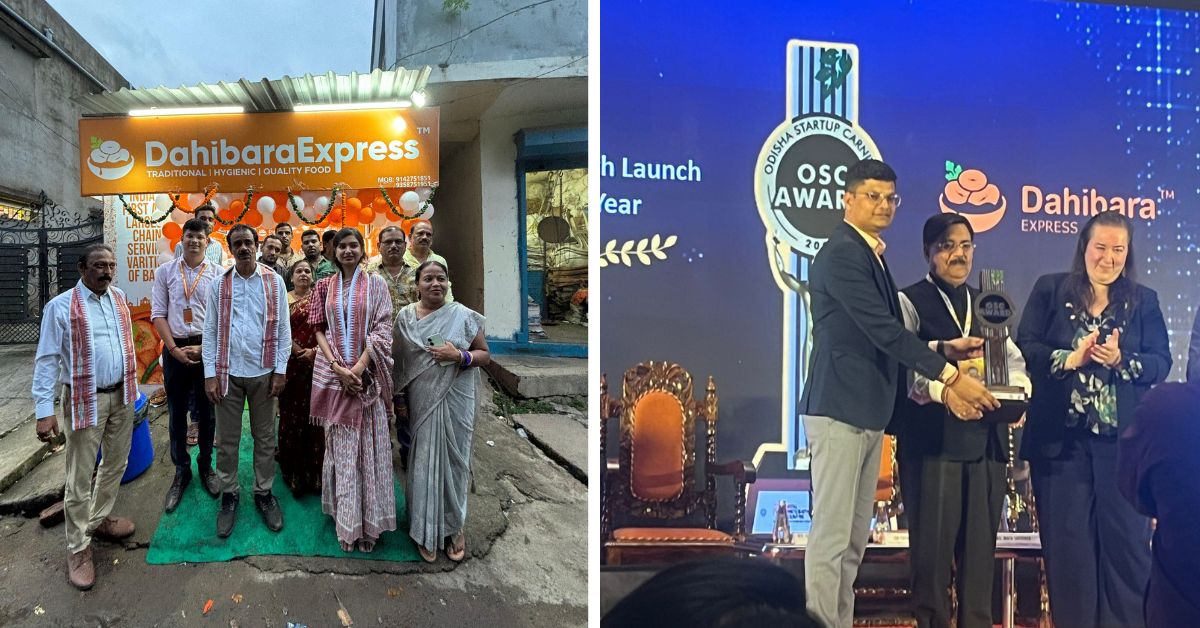When Sourabh Khandelwal moved to Hyderabad for work, he quickly noticed a gap that only widened at the end of long, tiring days. He often found himself craving the familiar taste of Dahibara, a beloved street food from Delhi. But in a city known for its own rich food culture, finding this simple, comforting dish proved nearly impossible.
That everyday struggle to reconnect with the flavours of home led to an idea. In 2023, Sourabh launched Dahibara Express — a food venture built around one core belief: that people shouldn’t have to leave their favourite hometown dishes behind when they move. His goal is to make regional street food from across India easily accessible in every corner of the country — and eventually, around the world.
“If you have your own brand, your growth is in your hands — even if it’s risky”
Sourabh didn’t plan to enter the food industry — it happened because of what life demanded. Growing up in a small village in Odisha, he lost his father when he was just 18. With the pressure of supporting himself, he had to make a quick, practical decision. “I wanted to study a course that would help me earn while studying to fund my education,” shares Sourabh. That’s how he ended up choosing hotel management.
While studying, he worked part-time in Bhubaneswar and noticed something about the industry that bothered him. “A waiter remains one for 20 years, despite the knowledge and skill that they own,” adds Sourabh. This thought stayed with him.
He began to understand that real growth might only come from building something of your own. “I figured out that having your brand increases the prospects of growth despite the risks it comes with,” Sourabh shares, and the idea stuck with him.

Even before finishing college, Sourabh started a real estate consulting company. “I had 70 employees in my company, and we were leasing out properties for clients,” Sourabh shares. But then came COVID-19 and a major cyclone in Odisha. Both hit his business hard. He had to shut it down and ended up selling office furniture just to pay his staff.
“To sustain my living, I had to switch streams and joined as an Incubation manager at the Defence Incubation in 2021,” shares Sourabh. His work there involved handling projects and figuring out if they could scale. Eventually, this caught the attention of the US Embassy, and he was hired under ACIR.
Even through all these ups and downs, one thought never left him. “While all of this was happening in my life, the idea of starting my own food brand never left my mind,” shares Sourabh. That quiet passion stayed in the background, waiting for the right time.
63 varieties of Dahibara Aloo Dum
Sourabh’s entrepreneurial venture into food finally took shape thanks to one beloved street food from Odisha — Dahibara Aloo Dum.
His research led to an astonishing discovery — there were 63 varieties of Dahibara across different regions. “While people in Odisha love it, most Indians from other states aren’t even aware of its existence. The same applies to other regional dishes,” he explains.

Instead of focusing on just one dish, Sourabh envisioned a chain that would showcase iconic street foods from each Indian state, traditional yet relatively unknown outside their region. This idea became the foundation of Dahibara Express, launched with pre-seed funding of Rs 6 crores from a Dubai-based investor.
Retaining the authenticity of the recipes
Pritam, a designer who has worked with Saourabh and seen the inception of Dahibara Express, shares that they were keen on maintaining the Indian aesthetics in the shop’s design. “Since this was a street food, we wanted it to appeal to the locals, but we also wanted it to look like a decent place that people would come forward and indulge in,” shares Pritam.
“The idea of not too urbanised, that the shop looks like a cafe, but appeals as an affordable place to get an authentic taste of Bharath, was the primary goal for Sourab, which we collectively worked on,” adds Pritam. With a vibrant orange aesthetic, the shop feels welcoming and reminds the customer of this beautiful street food delicacy.
Maintaining the authenticity of traditional recipes was non-negotiable for Sourabh. “Unlike a dish like Paneer Butter Masala, where different restaurants can have their own variations, these traditional recipes leave no room for innovation,” he asserts.

“Dahiballa has to be served with the sweet curd. The ratio of the beeri and rice has to be a certain amount for the bara to come out well,” stresses Sourabh.
“For this, I have travelled to almost every state, identified the pioneer of that particular street food, and have personally learnt the recipe,” adds Sourabh. The research process and recipe collection took about 8 months, and it was not a piece of cake.
“Not everyone is ready to share their recipe right away. Once I had to stay at this person’s place, who is a pioneer in making Dahibara, for two days, and learn the recipe via observation,” shares Sourabh. He has also provided monetary benefits to a few in return for the recipe.

“Even during difficult times while establishing the business, in terms of research, funding, staff management, Sourabh has never thought about giving up, despite multiple people advising him to do so,” shares Pritam, who says that Dahibara Express is the only thing that Sourabh ponders about day in and day out.
With 35 traditional dishes like Dahibara, Kozhu Kattai, Kanji Vada, Sambar Vada, Dal Pakwan and others, along with drinks like filter coffee, khawa tea, kaccha aampaani, served at Dahibara Express, Sourabh has also made it affordable and loved by all. “Our products start at Rs 39 and go up to Rs 200, making it light on the pocket,” Sourabh adds.
While the brand is primarily focused on the regional dishes, they want their outlet to be a place for storytelling and relatability. “When a person from the south comes to our outlet in Odisha along with their colleagues, and when they try our sambar vada, we instantly open a memory lane for them, thinking about their childhood and how they used to enjoy eating that dish,” adds Sourabh with a smile.
An effective expansion model
The growth of Dahibara Express has been rapid, and it will be closing at a revenue of Rs 1.8 crores this month. “We are planning to open 100 outlets by the end of March 2026,” shares Sourabh.
Working on a franchise model, anyone interested in opening the shop requires an investment of Rs 2 lakhs. “Our cost on the infrastructure is less, and since we have a central kitchen, we don’t require a fancy chef for each outlet, facilitating to empower unskilled labour through training,” Sourabh adds.

Kenil Maisuriya, a franchise owner from Surat, Gujarat, says he was convinced of the authenticity of the dishes when he ate China Puda, a sweet dish famous in Odisha. “The public is satisfied with the taste of the products provided in the outlet,” shares Kenik.
With 12 outlets opened throughout India, Dahibara Express is set to expand abroad with an outlet in Nepal. “Talks are underway to open one in Dubai as well. This will help in taking Indian street food to the global market,” Sourabh adds.
By ensuring authenticity, affordability, and hygiene, Dahibara Express is not only satisfying cravings but also evoking nostalgia, connecting people to their roots through the flavours of home.
As the brand sets its sights on international markets, Sourabh remains committed to his mission: to give India’s beloved street foods the global recognition they deserve, making sure that no matter where you are, home is always just a bite away.
Edited by Leila Badyari Castelino; All images courtesy Dahibara Express

No comments:
Post a Comment